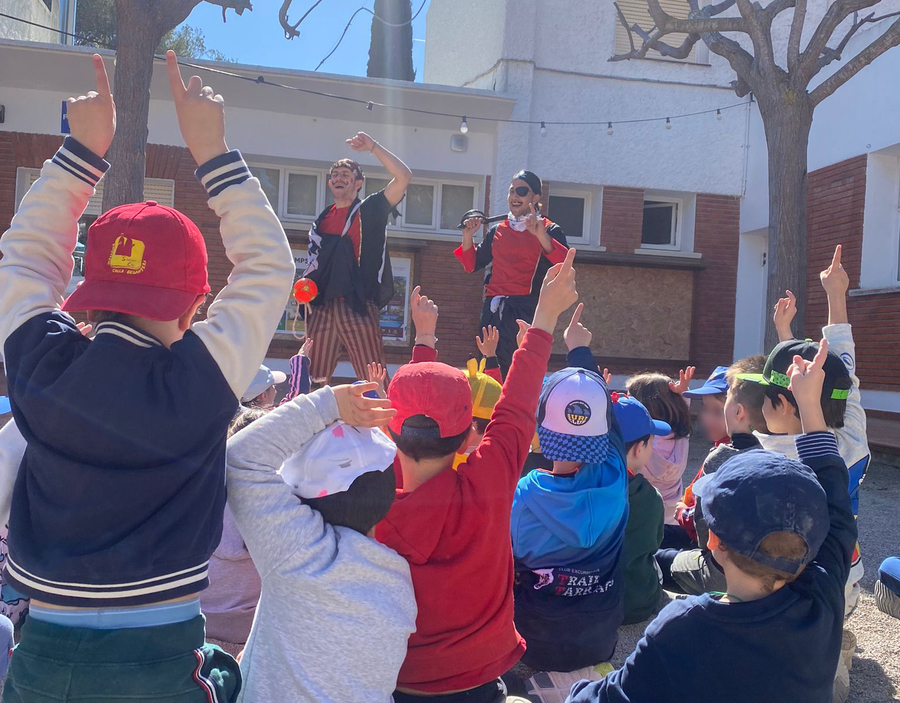Discover English activities for children: games, songs and camps. Learn English in a fun and practical way - make it fun for them!
 When it comes to teaching a new language to young children, creativity and fun are key. In this article we will explore ideas for English activities for children that will not only keep them entertained, but also stimulate their language learning in an effective way. Read on to discover original and practical proposals that you can implement at home or in the classroom!
When it comes to teaching a new language to young children, creativity and fun are key. In this article we will explore ideas for English activities for children that will not only keep them entertained, but also stimulate their language learning in an effective way. Read on to discover original and practical proposals that you can implement at home or in the classroom!
Why are English activities for children important?
Learning English from an early age has numerous benefits. Children have a natural ability to absorb new languages, which allows them to develop language skills more easily than adults. Incorporating dynamic, hands-on activities into their routine encourages language retention, improves their pronunciation and helps them gain confidence in speaking. In addition, English activities for children allow them to learn vocabulary and grammar without making the process feel like a chore.
Creative activities in English for children
Board games in English
Board games are a fantastic tool for learning vocabulary and working on skills such as reading, logical reasoning and social interaction. Some classic games such as Scrabble, Memory or Pictionary have English versions, allowing children to associate words with pictures while having fun.
Practical example: Create a personalised version of a memory game where the cards contain pictures and words in English, such as animals, everyday objects or colours.

Songs and rhymes in English
Music is a powerful resource for learning a new language. Children's songs such as ‘Twinkle, Twinkle, Little Star’ or ‘If You're Happy and You Know It’ help children improve their pronunciation and listening comprehension while having fun.
Tip: Organise karaoke sessions in English for children and encourage them to imitate the lyrics of their favourite songs. This will strengthen their vocabulary and confidence in speaking.
Crafts in English
Crafts are ideal for combining creativity with learning. Simple projects such as card making, collages or even costumes can be made using instructions in English.
Ask children to create an ‘Alphabet Album’ where each page has a letter with pictures or cut-outs related to English words beginning with that letter (e.g. ‘A’ for apple, ‘B’ for balloon, etc.).
Physical activities to learn English
Gymkana in English
Gymkana or treasure hunts are perfect for combining movement with learning. Design an activity where children have to follow instructions in English to find hidden clues. Include actions such as ‘jump three times’ or ‘find the blue ball’ to reinforce verbs and colours.

Simon Says
This classic game is perfect for working on verbs and actions in English. The game leader gives commands starting with ‘Simon says...’ (e.g. ‘Simon says: touch your nose’), and the children must perform the corresponding action. If the phrase ‘Simon says’ is not included, they must stand still.
This activity not only teaches vocabulary, but also improves attention span and active listening skills.
English summer camps
An effective way for children to learn English in an intensive and fun way is to enrol them in English Summer Camps. At English Summer, we offer a total immersion experience where children combine sporting, creative and educational activities in a fully English speaking environment. Our specialised monitors ensure that children develop their confidence in the language while enjoying unforgettable adventures and making new friends. These camps not only reinforce language learning, but also promote values such as teamwork and coexistence.
Benefits of English activities for children
Including these English activities for children in their daily routine can have a significant impact on their development.
Some of the main benefits are:
- Increased confidence: Children gain confidence in using English in practical and playful contexts.
- Improved pronunciation: Constant exposure to the language, especially through songs and stories, improves their pronunciation and comprehension skills.
- Cognitive development: Learning a second language stimulates memory, problem solving and critical thinking.

Conclusion
English activities for children are an effective and fun way to introduce young children to a new language. From board games and crafts to songs and physical activities, there are options for all ages and tastes. If you're looking to boost their learning even more, consider enrolling them in English summer camps, where they will learn and enjoy themselves at the same time. The most important thing is to keep a positive approach and create an environment where learning is natural and fun - give these ideas a try and see how much children enjoy learning English!


